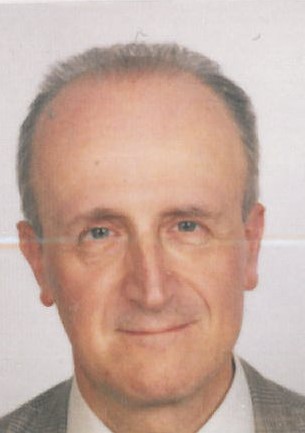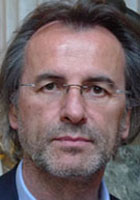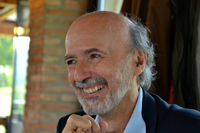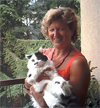Studying at the University of Verona
Here you can find information on the organisational aspects of the Programme, lecture timetables, learning activities and useful contact details for your time at the University, from enrolment to graduation.
Academic calendar
The academic calendar shows the deadlines and scheduled events that are relevant to students, teaching and technical-administrative staff of the University. Public holidays and University closures are also indicated. The academic year normally begins on 1 October each year and ends on 30 September of the following year.
Course calendar
The Academic Calendar sets out the degree programme lecture and exam timetables, as well as the relevant university closure dates..
| Period | From | To |
|---|---|---|
| Sem. IA | Sep 25, 2017 | Nov 11, 2017 |
| Sem. IB | Nov 13, 2017 | Jan 20, 2018 |
| Sem. IIA | Feb 26, 2018 | Apr 21, 2018 |
| Sem. IIB | Apr 23, 2018 | Jun 9, 2018 |
| Session | From | To |
|---|---|---|
| Sessione Invernale | Jan 22, 2018 | Feb 24, 2018 |
| Sessione Estiva | Jun 11, 2018 | Jul 28, 2018 |
| Sessione Autunnale | Aug 27, 2018 | Sep 22, 2018 |
| Sessione Straordinaria | Jan 14, 2019 | Feb 16, 2019 |
| Session | From | To |
|---|---|---|
| Sessione Estiva | Jul 16, 2018 | Jul 21, 2018 |
| Sessione Autunnale | Nov 12, 2018 | Nov 17, 2018 |
| Sessione Primaverile | Apr 1, 2019 | Apr 6, 2019 |
| Period | From | To |
|---|---|---|
| All Saints Day | Nov 1, 2017 | Nov 1, 2017 |
| Immaculate Conception | Dec 8, 2017 | Dec 8, 2017 |
| Christmas break | Dec 22, 2017 | Jan 7, 2018 |
| Easter break | Mar 30, 2018 | Apr 3, 2018 |
| Liberation Day | Apr 25, 2018 | Apr 25, 2018 |
| Labour Day | May 1, 2018 | May 1, 2018 |
| Patron Saint Day | May 21, 2018 | May 21, 2018 |
| Republic Day | Jun 2, 2018 | Jun 2, 2018 |
| Summer break | Aug 13, 2018 | Aug 18, 2018 |
Exam calendar
Exam dates and rounds are managed by the relevant Humanistic Studies Teaching and Student Services Unit.
To view all the exam sessions available, please use the Exam dashboard on ESSE3.
If you forgot your login details or have problems logging in, please contact the relevant IT HelpDesk, or check the login details recovery web page.
Should you have any doubts or questions, please check the Enrollment FAQs
Academic staff

Longo Mario
 mario.longo@univr.it
mario.longo@univr.it
 045 8028393
045 8028393
 linda.napolitano@univr.it
linda.napolitano@univr.it
 domenico.secondulfo@univr.it - domenico.secondulfo3@gmail.com
domenico.secondulfo@univr.it - domenico.secondulfo3@gmail.com
Study Plan
The Study Plan includes all modules, teaching and learning activities that each student will need to undertake during their time at the University.
Please select your Study Plan based on your enrollment year.
1° Year
| Modules | Credits | TAF | SSD |
|---|
5 course to be chosen among the followingOne course to be chosen among the following3 course to be chosen among the followingOther activitites2° Year activated in the A.Y. 2018/2019
| Modules | Credits | TAF | SSD |
|---|
2 course to be chosen among the following| Modules | Credits | TAF | SSD |
|---|
5 course to be chosen among the followingOne course to be chosen among the following3 course to be chosen among the followingOther activitites| Modules | Credits | TAF | SSD |
|---|
2 course to be chosen among the following| Modules | Credits | TAF | SSD |
|---|
Legend | Type of training activity (TTA)
TAF (Type of Educational Activity) All courses and activities are classified into different types of educational activities, indicated by a letter.
Theories of Experience (2017/2018)
Teaching code
4S003309
Teacher
Coordinator
Credits
6
Language
Italian
Scientific Disciplinary Sector (SSD)
M-FIL/01 - THEORETICAL PHILOSOPHY
Period
Sem. IIB dal Apr 23, 2018 al Jun 9, 2018.
Learning outcomes
The course aims at giving the conceptual, methodological and cultural grounds to promote a phenomenological inquiry on the affective experience and on the importance of emotional sharing for the relations of care, the individual formation (Bildung) and the foundation of social ontology.
In this course, crucial importance will be given to the role that desire plays in the relations of care and in the process of the human formation.
At the end of the course, students will have to prove: their adequate knowledge of the texts; critical assessment; to know how to communicate their knowledge in a clear, coherent and well-supported way; to know how to interact in the discussions with the professor and the other students.
Program
Emotional sharing and the leap to the symbolic thought
The recent developments in cultural anthropology and the empirical research of the American psychologist Michael Tomasello on the formative process during the first months of life in newborns of chimpanzees and humans have revealed the importance of the practices of emotional sharing for the leap towards the symbolic thought, the core of the human enigma.
TEACHING AND LEARNING METHODS
Frontal lessons and seminar discussions on the papers written by the participants. The students attending the course, according to their experiences and interests, will be asked to assess critically some of the scheduled texts, in order to write a short, well-reasoned summary on some sections of them.
| Author | Title | Publishing house | Year | ISBN | Notes |
|---|---|---|---|---|---|
| M. Scheler | Amore e conoscenza | Morcelliana | 2009 | ||
| M. Scheler | Il valore della vita emotiva | Guerini | 1999 | ||
| Gallagher, Zahavi | La mente fenomenologica | Cortina | 2009 | ||
| Max Scheler | La posizione dell'uomo nel cosmo | FrancoAngeli | 2009 | ||
| M. Tomasello | Le origini della comunicazione umana | Cortina | 2009 | ||
| Max Scheler | Ordo amoris (testo tedesco a fronte) | Aracne | 2009 | ||
| Guido Cusinato | Periagoge. Teoria della singolarità e filosofia come esercizio di trasformazione (Edizione 2) | QuiEdit | 2017 |
Examination Methods
For attending students:
A personalized program will be set together at the beginning of the course.
For non-attending students:
Two of the following options:
1) M. Scheler, Ordo amoris; Amore e conoscenza; Il valore della vita emotiva
2) M. Scheler, La Posizione dell'uomo nel cosmo
3) M. Tomasello, Le origini della comunicazione umana
4) Gallagher & Zahavi, La mente fenomenologica
5) Cusinato, Periagoge
The exam is in oral form and aims at verifying the adequate knowledge of the scheduled texts. In order to access the oral examination, students must submit a paper of 20000 characters. The paper must be previously agreed on with the professor during his office hours – after students have read the texts – and is to be submitted at least 7 days before the exam. The paper must be submitted via email, with a .doc document containing the student’s name, surname and identification number.
The paper should be thought as a well-reasoned summary of the sections of the scheduled texts that have raised the student’s interest, but it does not exonerate her to study the remaining parts as well. Specific attention should be payed to the pertinence and the precision in quoting. The paper is to be concluded with a short critical consideration of a couple of pages.
Type D and Type F activities
Modules not yet included
Career prospects
Module/Programme news
News for students
There you will find information, resources and services useful during your time at the University (Student’s exam record, your study plan on ESSE3, Distance Learning courses, university email account, office forms, administrative procedures, etc.). You can log into MyUnivr with your GIA login details: only in this way will you be able to receive notification of all the notices from your teachers and your secretariat via email and soon also via the Univr app.
Competenze linguistiche
I crediti formativi universitari relativi alle "Ulteriori competenze linguistiche" (B1 informatizzato se seconda lingua; livello B2 completo se stessa lingua della triennale) possono essere acquisiti in una delle due seguenti modalità:
- iscrizione da parte della/o studente presso il Centro Linguistico di Ateneo (CLA ➔ https://cla.univr.it/it/test-e-certificazioni) per il sostenimento e il superamento delle prove + iscrizione, sempre da parte della/o studente, in apposita lista per la registrazione crediti e registrazione CFU (senza presenza) da parte dell’Università.
Oppure
- equipollenza di certificazioni linguistiche esterne: riconoscimento equipollenza di certificazioni linguistiche esterne (➔ https://cla.univr.it/it/servizi/riconoscimento-delle-certificazioni-linguistiche-esterne).
Gestione carriere
Linguistic training CLA
Internships
Graduation
Documents
| Title | Info File |
|---|---|
|
|
pdf, it, 99 KB, 13/10/23 |
|
|
pdf, it, 101 KB, 10/04/24 |
List of theses and work experience proposals
| theses proposals | Research area |
|---|---|
| Linguaggio e mito in Tolkien | ENGLISH LITERATURE - Critical Theory & Poetics |
| Dialettica del negativo in Meister Eckhart | HISTORY OF PHILOSOPHY - MIDDLE AGES |
| La felicità nel Medioevo | HISTORY OF PHILOSOPHY - MIDDLE AGES |
| Le figure di Eva e Maria in Ildegarda di Bingen | HISTORY OF PHILOSOPHY - MIDDLE AGES |
| IA. Una critica fenomenologica al concetto di Intelligenza Artificiale | The Human Mind and Its Complexity: Cognitive science, psychology, linguistics, philosophy of mind - Philosophy of science, epistemology and logic |
Practical information for students
Documents
| Title | Info File |
|---|---|
|
|
pdf, it, 325 KB, 02/05/23 |
|
|
pdf, it, 212 KB, 02/05/23 |
|
|
pdf, it, 131 KB, 02/05/23 |






















